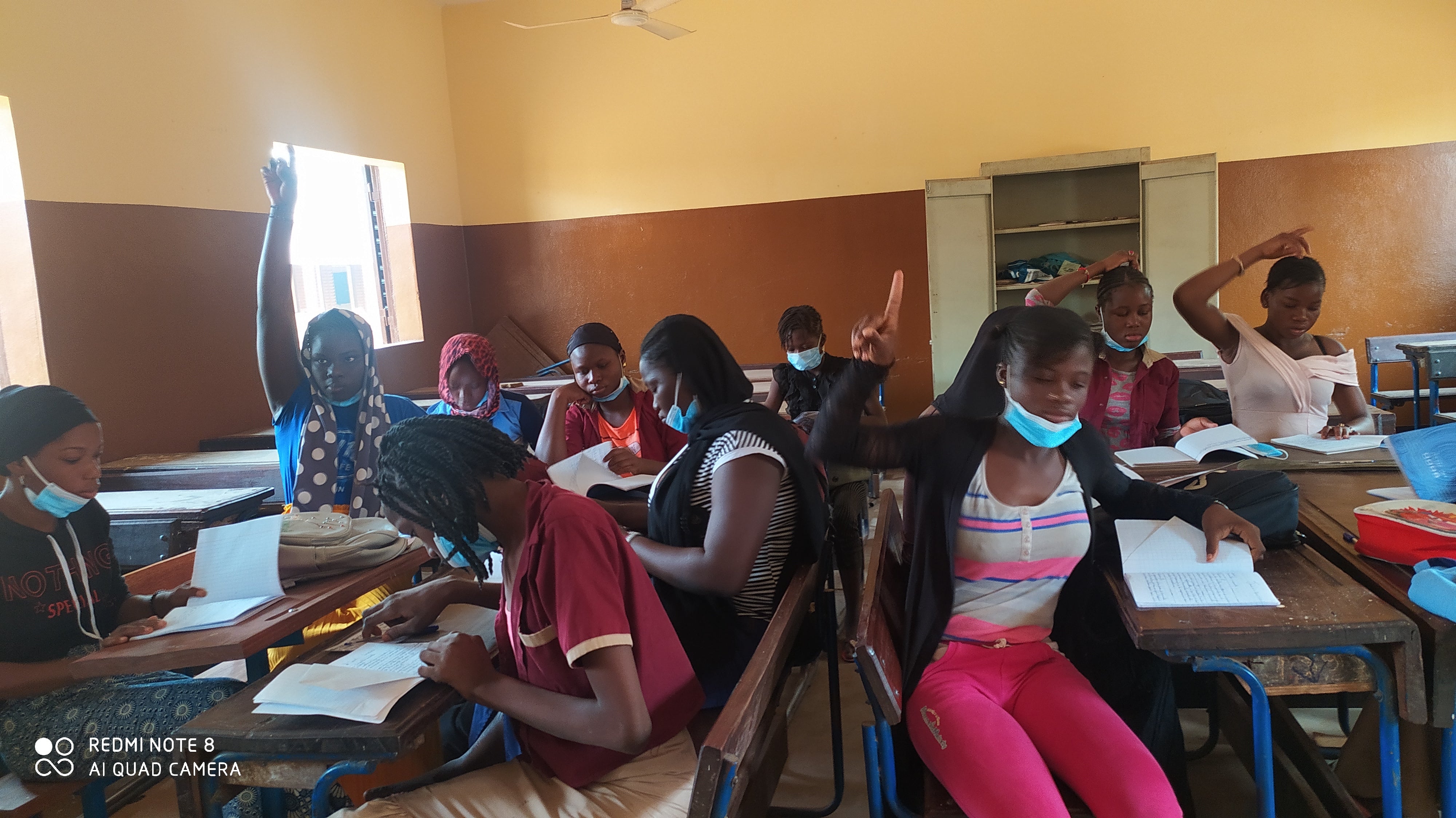Djénéba Gory: How Negotiation Can Impact Girls' Education and Aspirations

Hi everyone! I’m Spiffy, your favorite interplanetary journalist reporting from Planet Earth with an eye on entrepreneurs making a difference in education and gender equality. Today I’m going to learn about how training in negotiation skills can impact both education and gender equality for girls in Mali and throughout Africa. Join me as I welcome Djénéba Gory, co-founder of the non-profit organization, Suadela.
Spiffy: It’s so great to meet you, Djénéba! Can you tell me what challenge you are addressing through your work with Suadela?
Djénéba: Thanks so much for having me, Spiffy! We’re empowering girls in developing countries by teaching them how to be rock-star negotiators. In 2018, a whopping 66% of Malian high-school-age girls were out of school. The fertility rate of teenage girls 15-19 years old was the fourth highest in the world. Sadly, these numbers are predicted to increase again with COVID19. Suadela aims to change this! For teenage girls who are not empowered to make important decisions in their lives, we offer negotiation training, delivered by trained educated women. The program started in Mali and is designed to scale across other African countries.
Spiffy: Oh wow, this is exciting! What motivated you to tackle this?
Djénéba: My co-founder, Anne Thibault, and I are both passionate advocates of gender equity. Our experiences are different, but we share the belief that women are smart and talented, but too often face barriers to develop their full potential. We met in September 2018 while studying at Harvard Kennedy School. Two years later, in September 2020, we launched a call for applications for women to be trained as negotiation coaches. This is when our project, Suadela, really came to life! These bright women who applied to become coaches are so impressive, we would hate to miss this unique opportunity to make them core partners of our mission.
Spiffy: How is Suadela working to make the world more equitable?
Djénéba: Our mission directly supports Sustainable Development Goal 4—Quality Education, and SDG 5—Gender Equality. The COVID-19 pandemic has reinforced existing inequalities for women, and we aim to reduce them. Our 10 coaches have already trained 55 girls in negotiation during an after-school program in Bamako, Mali. This helps strengthen the girls’ ability to make decisions, increase their aspirations and contribute to the peace and development of their community. We are working towards multiple opportunities to scale up our program and reach as many girls as possible.
Spiffy: Can you tell me about the initiative that you’re currently working on?
Djénéba: After months of hard work prototyping our negotiation curriculum developed by Harvard professors, we just launched our very first pilot in a school in Bamako, Mali, with a group of 55 girls aged 13-18. At the end of the pilot, we want to understand if girls are actually able to use their negotiation skills in real-life situations to advocate for their education and health needs. In a few months, we will measure the impact of the training on girls’ enrollment rates in secondary school.
Spiffy: I always want to know if entrepreneurs have experienced failure. What about you? Have you faced failure?
Djénéba: Negotiation is generally taught through an experiential learning methodology based on role play and one-on-one simulations. Because of the pandemic, we could not do the first in-person coaching clinic we were planning in Bamako. Instead of giving up, we changed our model and decided to train our coaches via Zoom. The lesson we drew is that even if our plan B may not have been as effective as a proper in-person coaching clinic, what you can learn through iterative “quick and dirty” testing is priceless.
 Teenage girls from a school in Torokorobougou, Bamako, Mali, participating in Suadela’s negotiation training. (Image courtesy of Djénéba Gory)
Teenage girls from a school in Torokorobougou, Bamako, Mali, participating in Suadela’s negotiation training. (Image courtesy of Djénéba Gory)
Spiffy: I have one last question before we sign off. Have you learned anything unexpected lately? If so, what is it?
Djénéba: Before starting the pilot, we conducted interviews with each one of the 55 participants. We were sad to find out that most girls had low aspirations to continue their education in secondary school and saw early marriage as their best option. This made it clear for us that Suadela could play a key role in nudging these girls into aiming higher and aspiring for more education. Luckily, we are fortunate to have found inspiring coaches who can be amazing role models for girls in the future.
Spiffy: I can’t wait to see the results of your pilot! I wish you the best of luck! Thanks for taking the time to talk with me, it’s been an honor!
Djénéba Gory, co-founder of Suadela, is a social entrepreneur and consultant in human development and gender for the World Bank. She is a graduate of Harvard Kennedy School, and works alongside her co-founder, Anne Thibault. (Nominated by Harvard Innovation Labs)
© 2020 Ladderworks LLC. Edited by Jill Landis Jha. Spiffy’s illustration by Shreyas Navare. Follow Spiffy’s stories of founders building a more equitable world at www.ladderworks.co/blogs/spiffys-blog


